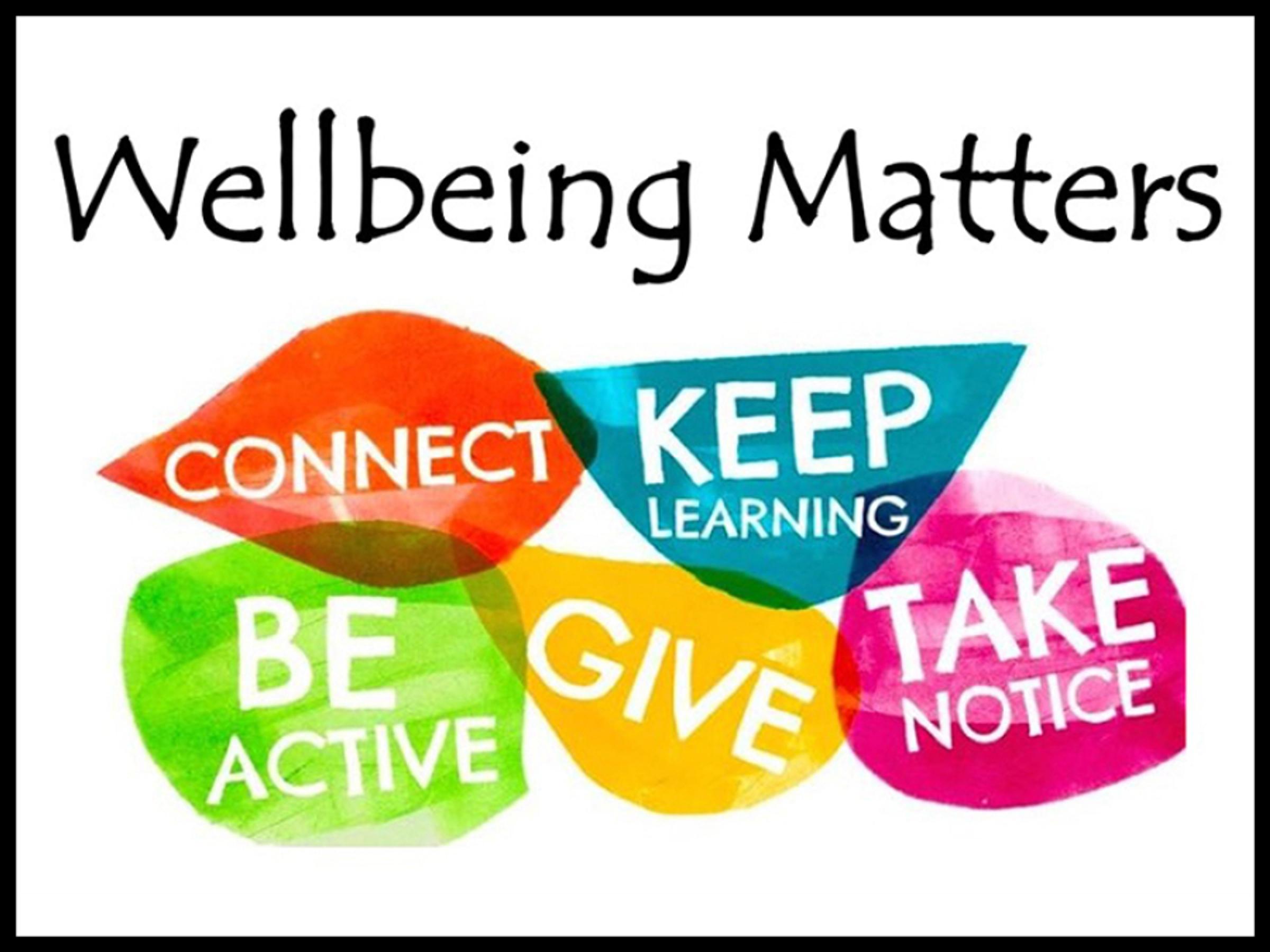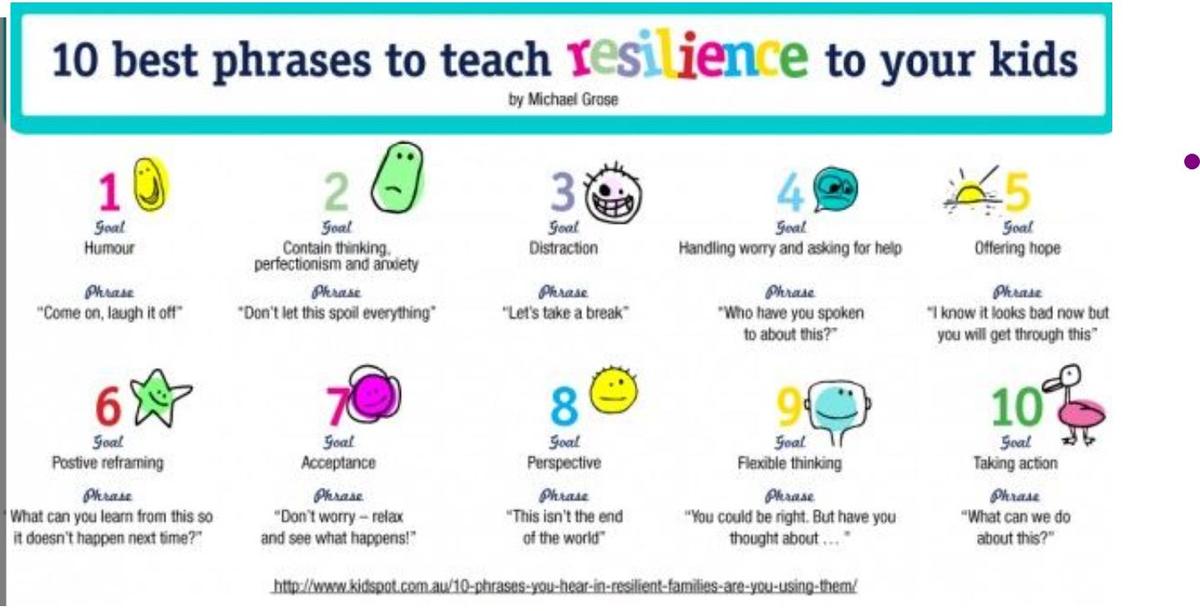Well being: Resilience

As adults we know that things don't always go the way we would like. It can be very difficult to keep a calm head when our children are sharing their negative experiences with us. Our natural reaction can be to want to immediately go in fighting for our child. As parents we need to stop and think carefully about how we respond to our child's tough experiences because the way we initially respond can have a big impact on how they are able to find a solution to the problem, and then move on.
It is very important that when a child is sharing their bad experience with you that you keep quiet and let them share the whole experience without interrupting and letting the see your frustration. Listen carefully and attentively. Explore their feelings with them and validate that the feelings are normal for the experience they had. Then work with your child on a plan that either they can put in place or you can action together. Think about what they can do next time it happens, if there is anyone that needs to know about the incident, ways they can refocus their thinking.
Always communicate with the school if you think we need to be aware of an incident as we know the importance of working in partnership with you but we'd also like to to consider what strategies you can give your child so that they are doing life long learning and know how to move forward from uncomfortable experiences.
Below is a list of suggestions from Michael Grose to assist with resilience in children.
It has been wonderful seeing all of the children's faces back at school this week.
kind regards,
Rikki Winduss
Wellbeing Leader

